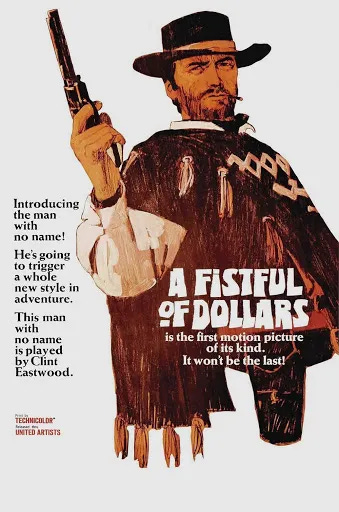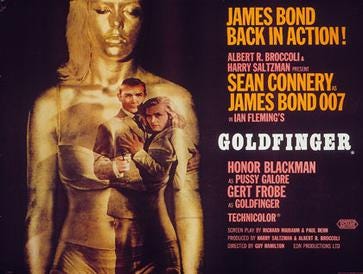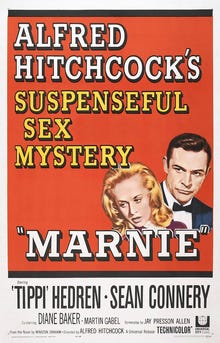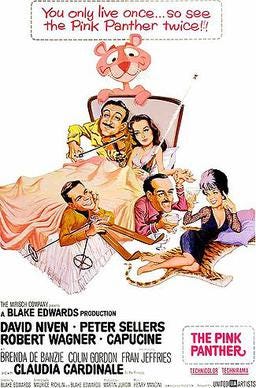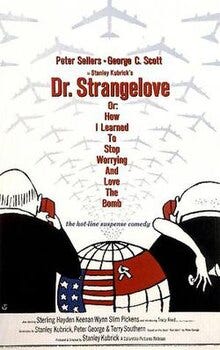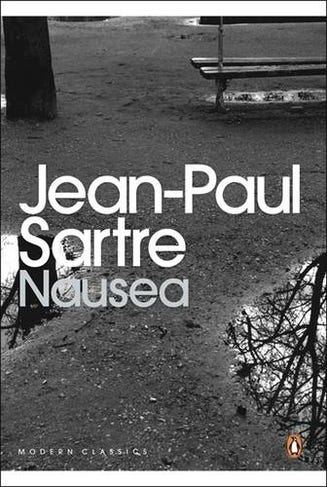Welcome aboard The Bus!
The Stop
In this third and final instalment of the Turning 60 in ‘24 miniseries, today’s Stop is a brief reminder of five great films released in 1964. In a year that gave us Mary Poppins, My Fair Lady, Zorba the Greek, Bikini Beach, A Hard Day’s Night, The Carpetbaggers and The Night of the Iguana, there are many worthy films. However, these are five I feel deserve a closer look - especially the Hitchcock and Kubrick ones.1

A Fistful of Dollars. Directed by Sergio Leone, this ‘spaghetti western’ helped define the genre with its operatic violence and unconventional hero. Starring Clint Eastwood in his first leading role, it is the story of the Stranger (Eastwood) who arrives in San Miguel - a Mexican border town caught up in a feud between the Rojo brothers and the family of the sheriff, John Baxter. A master gunslinger with an eye for manipulation, the Stranger decides to play both sides against each other to exploit their greed for his profit. Through a series of calculated moves and ruthless shootouts, the essentially amoral Stranger disrupts the town’s power dynamic and corrupts the status quo, leaving audiences to ponder the nature of justice in an essentially lawless land.
A Fistful of Dollars (Trailer)
Goldfinger. Directed by Guy Hamilton, Goldfinger solidified Sean Connery’s credentials as James Bond and established many features - foreign locales, an extended pre-credits introduction, extensive use of gadgets and tongue-in-cheek humour - which would become standard in later releases. Containing many action-packed sequences, classic characters such as Oddjob and Pussy Galore and a plot to irradiate the US gold reserves at Fort Knox, the film cemented both the Bond formula and various tropes that continue to influence the spy genre.
Marnie.2Directed by Alfred Hitchcock, this psychological thriller dives into the impact of repressed trauma on the human psyche. Starring Sean Connery and Tippi Hedren, the film tells the story of Marnie Edgar (Hedren), a beautiful but troubled young woman consumed by a compulsive need to steal. When Marnie catches the eye of wealthy widower Mark Rutland (Connery), she becomes entangled in a web of deceit. Captivated by the young lady, Mark blackmails her into marriage, vowing to unravel the mystery behind her kleptomania. As their relationship unfolds, the dark sources of her disorder are revealed. A film in many ways before its time, Marnie is an exercise in suspense that explores sexual repression, voyeurism, and the debilitating power of the subconscious.
The Pink Panther.3 Directed by Blake Edwards, The Pink Panther launched a very successful slapstick comedy franchise starring Peter Sellers as the inept Inspector Jacques Clouseau. When a priceless diamond - the ‘Pink Panther’ - is stolen from a museum, Clouseau finds himself in charge of the high-profile case. In contrast against the sophisticated jewel thief Dreyfuss (David Niven), Clouseau’s bumbling investigations and obliviousness creates a gentle, funny charm that is repeated in several sequels.
Dr Strangelove. Directed by Stanley Kubrick and starring Peter Sellers, Sterling Hayden, George C. Scott and Slim Pickens, this dark comedy - its full title is Dr. Strangelove or: How I Learned to Stop Worrying and Love the Bomb - satirises the Cold War paranoia surrounding nuclear war. When unhinged American General Jack D. Ripper (Hayden), convinced of a Soviet attack in an attempt to corrupt Americans’ ‘precious bodily fluids’, launches a pre-emptive nuclear strike, President Muffley (Peter Sellers), aided by the former-Nazi nuclear expert Dr Strangelove (also Sellers), scrambles to prevent the global annihilation which is all but guaranteed by the Soviet ‘Doomsday Machine’. The film's dark humour mocks military madness, political posturing, and the absurdity of the mutually assured destruction (MAD) doctrine,4 and if you’re going to watch any of these films - this is the one.
The Detour
Today’s Detour is to a genuinely fascinating documentary (14:26) from Business Insider profiling La Maison du Pastel - a 300-year-old company which makes some of the best pastels in the world. It’s an amazing process which has remained the same since the company’s inception. Worth a watch, especially if you like colours!
The Recommendation
Today’s Recommendation is Jean-Paul Sartre’s first novel, Nausea (1938) - included in today’s Stop because 1964 was the year Sartre was awarded the Nobel Prize for Literature. Which he declined to accept.
A cornerstone of existentialist philosophy, Sartre’s modernist novel - in the form of a diary kept by the melancholic historian Antoine Roquentin - chronicles his growing alienation and revulsion towards his own existence. As his world begins to lose meaning, objects around him become ‘viscous’, and he begins to feel his existence is merely ‘contingent’ and therefore absent of any real purpose. As his alienation and disillusionment grow, Roquentin discovers they coincide with what he calls ‘the nausea’ - the sense that people and things around him lose their familiar and recognisable qualities.
Throughout the novel, Sartre investigates what would become recognised as core existential themes: the anguish of freedom, the absurdity of a meaningless universe, and the responsibility individuals hold in creating their own meaning. Nausea's exploration of Roquentin's struggle with his existence continues to resonate with readers, prompting them to grapple with their own place in an essentially meaningless world and universe. Highly recommended.
The Sounds
Today’s playlist is, of course, another selection of five great tracks from 1964: ‘I Get Around’ (The Beach Boys, All Summer Long), ‘Oh, Pretty Woman’ (Roy Orbison, Oh! Pretty Woman), ‘Come a Little Bit Closer’ (Jay & The Americans, Come a Little Bit Closer), ‘Do You Want to Know A Secret’ (The Beatles, Please Please Me) and ‘Money (That’s What I Want)’ (The Kingsmen). Enjoy!
The Thought
Today’s Thought is from Jean-Paul Sartre’s public explanation (on 22 October 1964) of why he declined to accept the Nobel Prize in Literature:
‘A writer must refuse … to allow himself to be transformed into an institution.’
If you have a thought on this Thought - or any part of today’s issue - please leave a comment below:
And that’s the end of this Stop - I hope you enjoyed the diversion!
Thanks to everyone who subscribes - your interest and support is truly appreciated. If you like The Bus, please SHARE it with a friend or two.
If you haven’t climbed aboard The Bus, please do!
If you like The Bus, why not check out other newsletters?
The Sample sends out articles from blogs and newsletters across the web that match your interests. If you like one, you can subscribe with one click.
Until the next Stop …
Sources for today’s Stop include eponymous Wikipedia and IMDB entries. For more information, please feel free to look these up.
I loved this film as a kid, watching it for the first time on TBS sometime in the early 1980s. In fact, this film - along with Sybil - created a need to stay home ‘unwell‘ from school (sorry, Mom) on a couple of occasions to ensure I saw how it ended. Illicitly gained time well spent, I’d say.
Though released in Italy in late 1963, The Pink Panther was only offically released in March 1964 in the US. And thus it’s candidacy for today’s Stop.
Fun fact: James Earl Jones (among many other things, the voice of Darth Vader) had his film debut as the bombardier Lieutenant Lothar Zogg.



